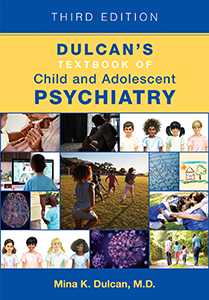Sections
Excerpt
Anxiety and depressive disorders are among the most prevalent childhood psychiatric conditions (see Chapter 13, “Depressive and Disruptive Mood Dysregulation Disorders,” and Chapter 15, “Anxiety Disorders”) (Avenevoli et al. 2015; Merikangas et al. 2010). For many individuals, the onset of depression or anxiety occurs during childhood or adolescence, and, distressingly, symptoms typically persist. Moreover, rates of depression among youth have been increasing during recent years (Mojtabai et al. 2016).
Access content
To read the fulltext, please use one of the options below to sign in or purchase access.- Personal login
- Institutional Login
- Sign in via OpenAthens
- Register for access
-
Please login/register if you wish to pair your device and check access availability.
Not a subscriber?
PsychiatryOnline subscription options offer access to the DSM-5 library, books, journals, CME, and patient resources. This all-in-one virtual library provides psychiatrists and mental health professionals with key resources for diagnosis, treatment, research, and professional development.
Need more help? PsychiatryOnline Customer Service may be reached by emailing [email protected] or by calling 800-368-5777 (in the U.S.) or 703-907-7322 (outside the U.S.).



